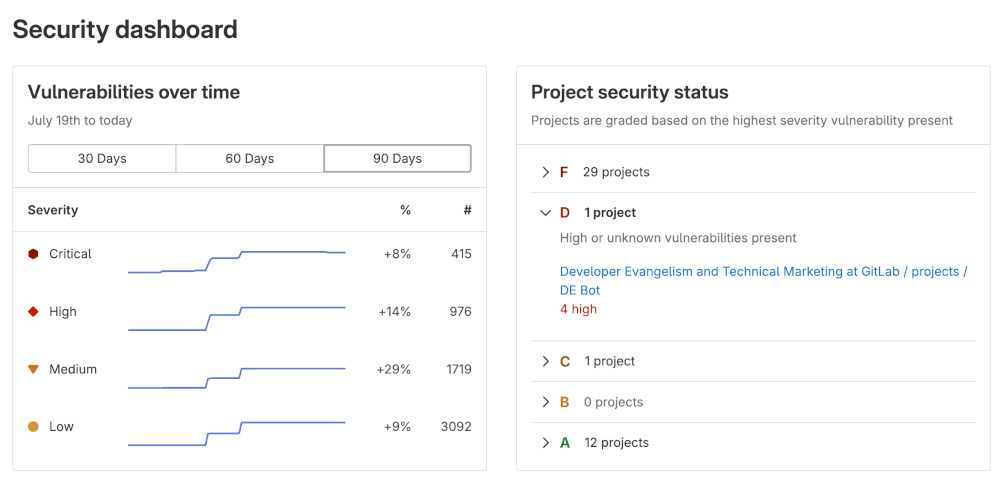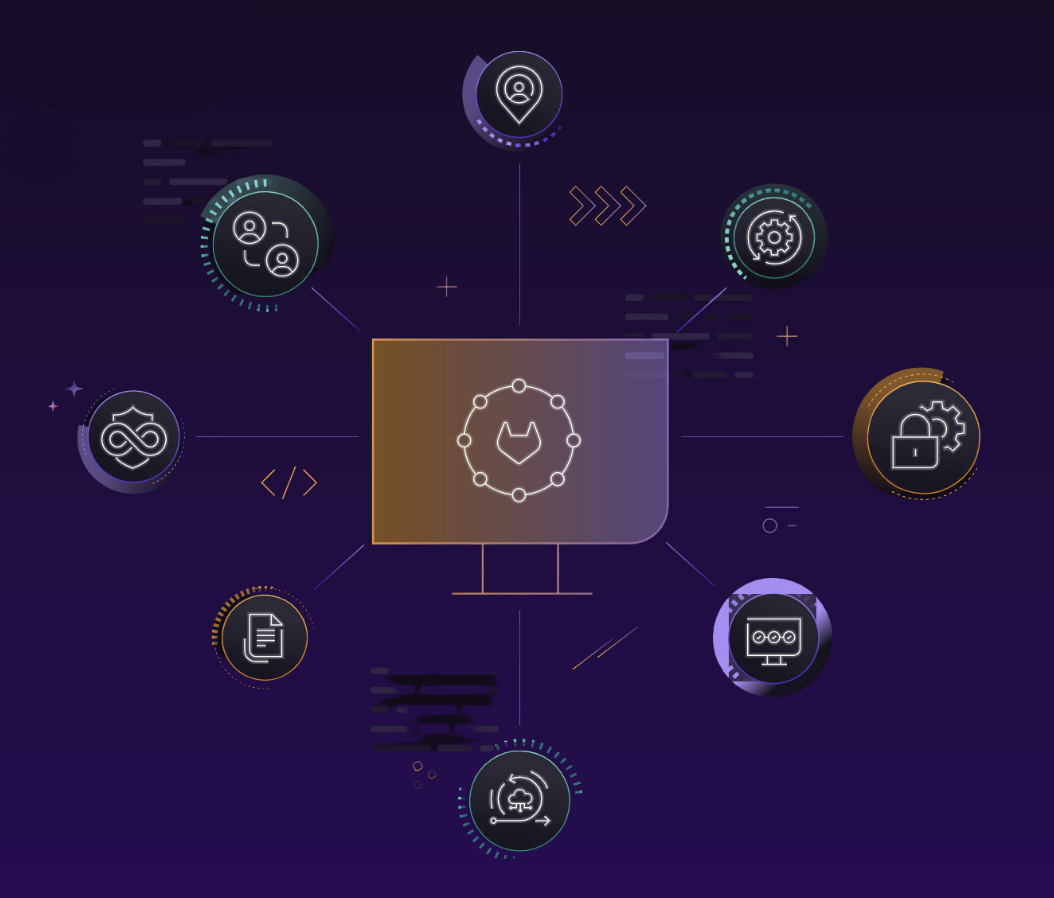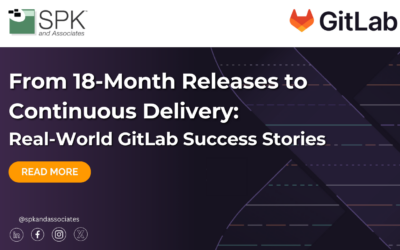In the rapidly evolving threat landscape, secure software development is essential. DevOps teams must embed security throughout the development lifecycle to reduce risks, meet compliance requirements, and deliver trustworthy applications. As a leading DevSecOps platform, GitLab provides a powerful suite of built-in security features that help development teams identify and fix vulnerabilities before they reach production. In this blog, we’ll explore how GitLab Ultimate’s advanced security features, particularly Static Application Security Testing (SAST) and other scanning capabilities, can help protect your code, improve your security posture, and accelerate your secure development lifecycle.
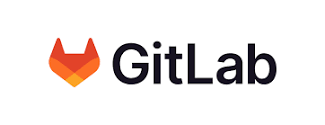
GitLab’s Built-In Security Features
GitLab takes a proactive approach to application security by embedding testing and protection tools directly into its CI/CD pipelines. These tools allow teams to shift security left, catching issues earlier, when they’re cheaper and easier to fix.
Here’s an overview of GitLab’s key security capabilities:
Static Application Security Testing (SAST)
SAST scans your application’s source code and binaries for security vulnerabilities before deployment. Built on a mix of open source and proprietary tools, GitLab’s SAST automatically runs during the CI/CD process and highlights issues inline with every merge request. Developers can act immediately, without context switching.
Secret Detection
GitLab’s secret detection identifies hard-coded credentials, keys, and other sensitive data in commits, blocking them from being pushed and preventing accidental exposure.
Dependency Scanning
This tool scans libraries and packages used in your projects for known vulnerabilities, using GitLab’s integration with Gemnasium. It also provides inline feedback during merge requests.
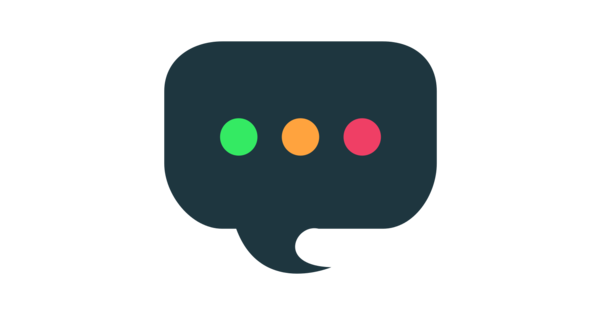
Container Scanning
GitLab analyzes Docker images for known vulnerabilities, comparing them against public vulnerability databases. The scanning process integrates seamlessly with your containerized workflows.
Dynamic Application Security Testing (DAST)
DAST evaluates live running applications to find runtime vulnerabilities. It simulates real attacks on review apps or deployed environments, identifying misconfigurations and weaknesses not visible in static code.
API Security and Fuzz Testing
APIs are common attack vectors. GitLab offers API security testing and fuzzing to uncover both known and unknown vulnerabilities in your live APIs, using randomized payloads and credentialed access.
License Compliance Scanning
This scans code dependencies for license types, ensuring you comply with open-source licensing policies defined for your projects. It flags unapproved licenses inline during code reviews.

Infrastructure as Code (IaC) Scanning
IaC files are scanned to detect security misconfigurations in cloud infrastructure (e.g., Terraform or Kubernetes manifests), ensuring safe deployment environments.
GitLab Ultimate: Going Beyond Security Scans
While many of the above features are available in GitLab’s free or premium tiers, GitLab Ultimate offers a full suite of enterprise-grade security and compliance tools that go beyond scanning:
- Compliance Center: Centrally manage and monitor compliance violations across your organization.
- Security Dashboards: View aggregated security vulnerabilities in a centralized dashboard, helping security teams prioritize and remediate effectively.
- Merge Request Approval Policies: Prevent insecure code from being merged unless approved by a security reviewer.
- Secret Push Protection: Automatically block pushes that include sensitive data like API keys and passwords.
- Air-Gapped Environments: Run GitLab security tools even in offline or limited-connectivity environments.
- Value Stream Management and Portfolio Planning: Enable end-to-end visibility for secure product delivery pipelines.
These features are particularly valuable for organizations operating in regulated industries, where traceability, audit readiness, and secure collaboration are mandatory.
Why You Should Use GitLab for Security
Implementing GitLab’s security features provides measurable advantages such as proactive risk reduction. GitLab identifies vulnerabilities early and avoids last-minute fixes before release. Additionally, inline feedback makes it easier for developers to take immediate action against security threats. GitLab is also a consolidated platform offering an all-in-one place for DevSecOps needs. Its central dashboards and merge request insights streamline triage and for faster remediation. Furthermore, built-in license checks, secret detection, and audit trails support regulatory frameworks like ISO 27001, SOC 2, and GDPR. Lastly, approval rules and policies keep teams from merging risky code without oversight. By integrating these capabilities directly into your development process, GitLab helps your team deliver secure code faster, without sacrificing agility.
Using GitLab’s Advanced Features to Enhance Security
Security should be directly built in, and with GitLab’s advanced features, organizations can build security into every stage of the software development lifecycle. From static code analysis to live DAST scans, GitLab equips developers and security teams with the tools they need to detect vulnerabilities early, enforce compliance, and streamline remediation. At SPK and Associates, we help organizations implement and optimize GitLab for secure DevOps workflows. Whether you’re looking to leverage GitLab Premium or GitLab Ultimate, we’re here to help you succeed.
Ready to enhance your DevSecOps pipeline with GitLab?
Contact SPK for a free GitLab security assessment today.




